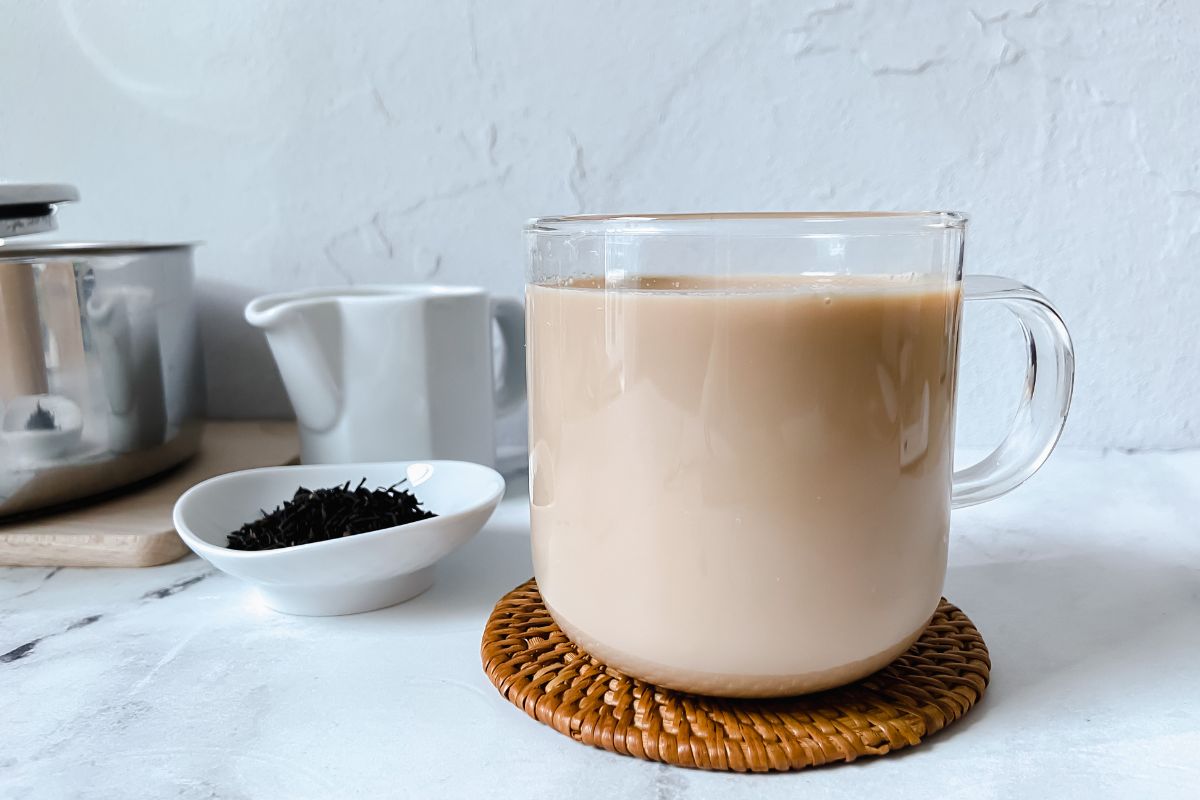
Milk tea, a creamy and aromatic beverage, has become a cherished staple in various cultures worldwide, especially in India, where it plays a key role in daily routines. For many, the day doesn’t feel complete without a steaming cup of this flavorful drink. While milk tea offers some benefits, consuming it regularly can have both positive and negative effects on the body.
Potential Benefits of Drinking Milk Tea Daily
1. Stronger Bones with Calcium
According to Ipsita Chakraborty, a senior nutritionist at Hungry Koala, milk tea can be beneficial for bone health. Milk is a rich source of calcium, a crucial mineral for maintaining strong bones and teeth. Drinking milk tea regularly may help improve bone density and reduce the risk of osteoporosis, particularly as we age, when bones naturally become more fragile.

2. Enhanced Mental Alertness from Caffeine
Tea contains a moderate amount of caffeine, which can help increase alertness and improve concentration. Unlike the jittery rush from coffee, the caffeine in tea provides a gentle, sustained boost that enhances brain function without causing an energy crash. For those who rely on mental clarity to kick-start their mornings, milk tea offers a pleasant and effective way to stay sharp.
3. Cell Protection with Antioxidants
Tea leaves are rich in antioxidants, particularly polyphenols like catechins and flavonoids. These compounds act as powerful shields, protecting the body’s cells from oxidative damage caused by free radicals. Over time, antioxidants can reduce the risk of chronic diseases such as heart disease and certain cancers while supporting overall immune health.
Potential Downsides of Drinking Milk Tea Daily
1. Digestive Discomfort
Not everyone’s digestive system reacts well to daily consumption of milk tea. The combination of dairy and caffeine can irritate the gastrointestinal tract for some, leading to bloating, gas, or indigestion. Those who are lactose intolerant or sensitive to dairy may find that drinking milk tea frequently triggers discomfort. Switching to plant-based milk alternatives might alleviate these symptoms.
2. Weight Gain and Increased Diabetes Risk
Many milk tea recipes include sugar to enhance the flavor, and over time, these extra calories can add up. Consuming sugary milk tea every day increases the risk of weight gain, especially if not balanced with physical activity. Additionally, frequent intake of sugar-laden beverages can elevate the risk of insulin resistance, potentially leading to type 2 diabetes.
3. Risk of Dehydration from Caffeine
While caffeine can stimulate the brain, it also has a diuretic effect, meaning it increases urine production. Drinking milk tea excessively may lead to more frequent trips to the bathroom, which could leave you dehydrated if not counterbalanced with adequate water intake. Dehydration can cause fatigue, headaches, and affect overall bodily functions.

Conclusion: Striking a Balance with Milk Tea
Milk tea can be a delightful and beneficial addition to your day when consumed in moderation. It provides calcium for bone health, antioxidants to protect cells, and caffeine to boost mental focus. However, daily consumption can also come with drawbacks, such as digestive discomfort, unwanted weight gain, and dehydration if you’re not mindful of portion sizes and sugar content. For optimal results, enjoy milk tea responsibly by moderating sugar, hydrating well, and adjusting your diet to suit your body’s needs.
